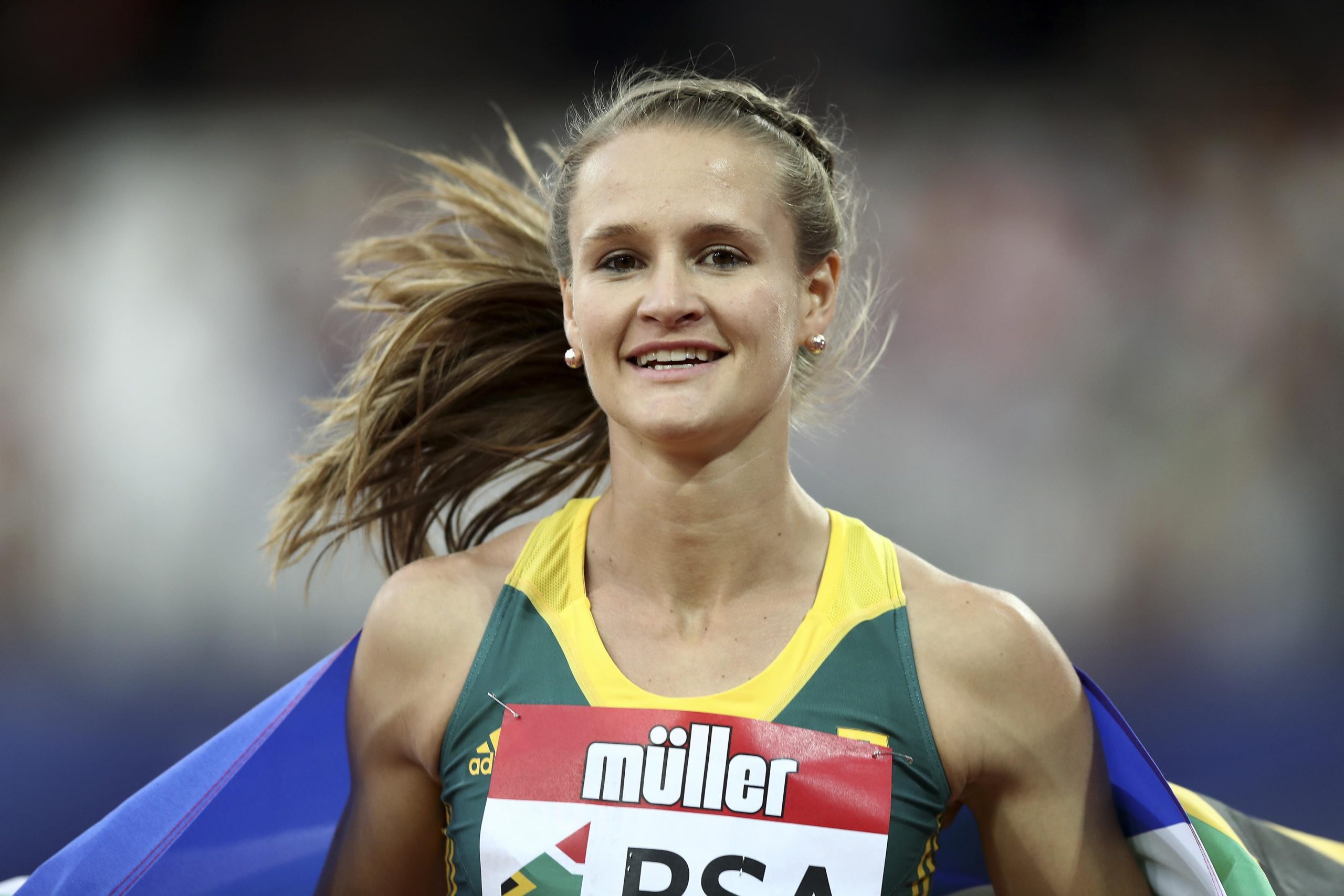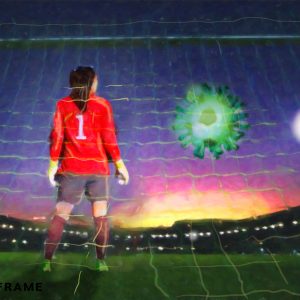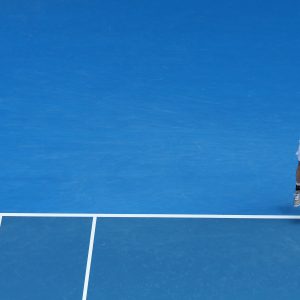Tracking Covid-19’s long-term effects on athletes
A study by South African sport scientists is shedding light on how long it takes to recover from the virus and return to training safely. Its findings can benefit athletes’ mental wellness too.
Author:
24 May 2021

Split seconds after Rikenette Steenkamp pushed off the blocks, she knew she was in trouble. The after-effects of Covid-19 held her body back as she navigated her way over 10 barriers in her favourite event, the 100m hurdles at the SA Senior Track and Field National Championships in Pretoria in April.
Nearly four months after Steenkamp had recovered from the virus, she was still experiencing lingering symptoms that have not only put her Olympic dreams in jeopardy, but also her long-term health.
“When you get a scare like this, you are no longer fighting to get into a final. You are fighting for your life,” said Steenkamp nearly a month after the race. “You get perspective of the bigger picture and, in a way, I have to process the loss because I was 100% fine last year.”
Steenkamp has emerged as one of South Africa’s few world-class female track athletes in recent years, setting a national 100m hurdles record of 12.81 seconds in La Chaux-de-Fonds, Switzerland, in 2018. She twice improved the South African indoor record in the 60m hurdles in 2020.
Related article:
A year later, the 28-year-old pushed out of the blocks with effort, dragging her reluctant body over the hurdles to win her heat, clocking 13.74 seconds – a time she could normally run without effort. But it required a lot more energy than she expected and ultimately took a toll on her body.
Steenkamp’s heart was beating at a frantic pace after the race. It remained above 120 beats a minute three hours later, whereas under normal circumstances her resting heart rate would go down to between 70 and 80 beats a minute.
“We did blood tests and I was told the infection count in my body was considerably high. They told me, ‘You should actually be in bed’, but I didn’t have a sore throat or anything like that,” Steenkamp said.
“I consulted a few doctors and they believed that it could be as a result of the Covid, but we can’t say that with 100% certainty.”
Related article:
In Steenkamp’s opinion, she did not rush her return to training, telling herself to take it easy on her body coming out of isolation. In the first week, she stuck to her plan before incrementally picking up the pace.
“I would say the first month of training went well. We were monitoring everything and then I thought that it would exponentially get better,” she said. “That is when I experienced a turnaround, and it was one thing upon another. The one moment I don’t feel well, the next I feel tired, then I have to take a day off.
“I couldn’t find momentum and I got sick again, where I was battling with inflammation in my body. I experienced more pain after a session, it took longer to recover and I was definitely more fatigued.”
Keeping Olympic dreams alive
With the Olympic Games in Tokyo fast approaching, Steenkamp is in a race against time to get back on the track in her pursuit of qualifying for the global showpiece. For now, though, her dream is on ice. On the advice of her physician, she is giving her body time to recover before hopefully getting the all-clear.
Steenkamp’s brush with Covid-19 is by no means unique, with many athletes having to battle through the uncertainties of the coronavirus. Just over a year into the pandemic, healthcare professionals are still scratching their heads over the virus’ long-term effects after recovery. This is slowly but surely changing with a new study led by South African sports scientists that is shedding light on the disease’s impact on athletes and providing direction for their post-Covid recovery.
The Athletes with Acute Respiratory Infection research study, based at the University of Pretoria and led by sports physician Martin Schwellnus, has been conducted in association with the International Olympic Committee Research Centre of South Africa. While still under way, the study’s initial findings show that athletes who have had Covid-19 have “a significantly longer return-to-play” than those with other acute respiratory illnesses (ARIs).
Should an athlete contract the virus now, it could prove a devastating blow in the final stretch of their preparations for a major competition such as the Olympics. While athletes may be able to return to training within 20 days after the onset of symptoms, it could take much longer, the study shows.
Related article:
Schwellnus recently published a preliminary paper in the British Journal of Sports Medicine that provides some answers to how athletes can plot their return to training after they have recovered from Covid-19.
The study looked at how symptoms of ARIs during the acute phase affected the time of return-to-play in athletes. It also compared how the number, type, duration and severity of symptoms in athletes with confirmed or suspected Covid-19 differed from athletes with other ARI causes.
Schwellnus says the findings will assist sport and exercise physicians. “We gathered data on athletes and we tried to ascertain during the acute illness phase – the first 10 to 14 days – to what extent can the symptoms likely predict whether they are going to have long-lasting problems getting back to sport, or if it is going to be fairly quick,” Schwellnus said.
“So basically what it says is that if you are an athlete or a coach, you can almost tick the symptoms in your three groups, depending on the cluster you are in, to determine the likelihood of having more time before you return to sport. It can now somewhat be predicted.”
The study concludes that clinicians can “document the type, duration and severity of symptoms at the time of acute illness and then use the symptom cluster to identify athletes that may be at higher risk for a more prolonged return-to-play”.
Implications for training
The researchers found that a symptom cluster – excessive fatigue, chills, fever, headache, altered or lost sense of smell, chest pain or pressure, difficulty in breathing and loss of appetite – is associated with prolonged return-to-play in symptomatic athletes with an ARI, including Covid-19.
“The most important symptom of ARI associated with a longer return-to-play was ‘excessive fatigue’, with a 70% lower chance of return-to-play over the 40-day period,” the researchers found. “We show that athletes with Covid-19 presented with a greater number and more severe symptoms than a subgroup of athletes with other ARIs.”
Steenkamp says although she had severe headaches and other flu-like symptoms during the acute phase, she had experienced greater bouts of illness with other conditions before. “If I look back, people tell me I returned to training too soon, but I remember at the time telling myself not to rush back,” she said.
Related article:
The virus can manifest in different ways in athletes. Steenkamp’s training partner, Commonwealth Games bronze medallist Wenda Nel, also contracted the disease but has fully recovered and found some of the best form of her career.
In a way, Nel had the “benefit” of getting Covid-19 in July 2020, which gave her ample time to recover and not try to rush back under pressure of qualifying for the Olympics. Nel admits that had she contracted the virus when Steenkamp did, her approach may have been different.
“I took it a lot easier because I knew I wasn’t going to race the rest of the year, so for four weeks I came to track to get going again,” she said. “It would definitely have affected me differently had I contracted it now [in April].”
Triathlon and distance running coach Lindsey Parry says the research findings will be of great value in tracking the milestones on the road to recovery and phasing an athlete back into a training programme. “The study is incredibly helpful because we are in an Olympic year and there is quite a tight timeline,” Parry said.
“So, when you know from the initial onset of Covid-19 and specific symptoms that crop up [that it] would mean x time or x time [before returning to training], it is crucial in terms of managing expectations. It is critical in making sure you don’t overreach in the early stages. Overreaching in the early stages really sets you back.”
Related article:
The researchers will extend their work with a larger sample size and include other variables such as age, sex, sport type, treatment modalities used and existing comorbidities. This will further provide athletes, coaches and sports physicians with a blueprint for return-to-training protocols.
However, the internal battles that rage in the minds of athletes remain one of the most important variables in the return-to-play decision-making matrix.
“As athletes, we are used to seeing things as mind over matter when you have an off day, but if you don’t quite get over that off day, you start to worry a bit,” said Steenkamp. “I decided to run nationals because I felt I was on the road to recovery, but after my heat I realised I was definitely not ready.
“It was like I was speaking to myself during the race, and people who know me know that it is not in my character. But I was upset afterwards because I knew, at that moment, I wasn’t ready and something was wrong. I did everything to make the final, but it was just not worth it.”





